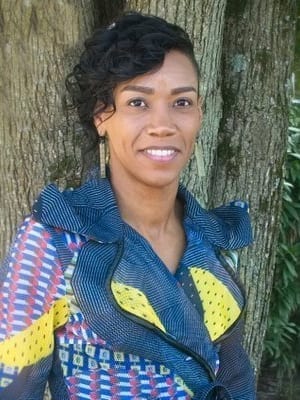
It’s been one year since the mass shooting at Tops Friendly Market in Buffalo, New York, that left 10 dead and three wounded. Fueled by that toxic combination of hate and ignorance, I wonder what we, as a society, are missing.
I do know who we have missed out on. Ten precious souls, 10 unsuspecting victims, we have already lost so much. I struggle with how to remember them because of my last memory of them.
The shooter recorded it. I wanted to be near to them, so I watched it.
I’m a former pastor, so I have sat bedside for last breaths and loud cries as family members pleaded for one last hug, a final goodbye. The two experiences are not the same, as I could not hold the victims’ hands or sing to them as they crossed over to the other side.
Their manner of death is worse than death itself – death by white supremacist ideology and, thus, coming in a white sheet with cut-outs for the eyes. The shooter’s actions come with a long history. The Ku Klux Klan still rides, commuting to African American communities and leaving a pain unspeakable and a racist manifesto — plagiarized.
Mass shootings, this pairing still causes a cognitive dissonance for me. As a pacifist and peacemaker, I don’t think the two words belong together. Because when they are in the same room, nothing good ever happens. Yet, they keep bringing us together, and I want to push back.
Today, it feels like my hope for unity is more like shooting for the stars. It’s up in the air, “up above my head” somewhere.
My head is not in the clouds. It’s just hard to keep my footing when there’s blood everywhere and it’s crying from the ground.
I should answer them now, but I don’t know what to say so let’s do it together. Will you help me?
Say their names with me now: Roberta A. Drury, Margus D. Morrison, Andre Mackneil, Aaron Salter, Geraldine Talley, Celestine Chaney, Heyward Patterson, Katherine Massey, Pearl Young and Ruth Whitfield.
Where would they be now — if the shooter hadn’t gone to the supermarket?
Nearly all were our elders, hair grayed and well past retirement age. But those details don’t matter to a young man enraged by unsubstantiated and unbridled fear of the loss of power.
Still, a grocery store is where we go to pick out fresh fruits and vegetables — not pick up dead bodies, not identify this body as a member of our family, not watch a family member be placed in a body bag and carried out to the car you’re not driving.
I want to scream, “Stop! Where are we headed? Where is this going?”
Days after the shooting, I went to the grocery store and started to feel afraid. I started looking for places to hide just in case. I looked under the fruit stand and found a crawl space. I felt a sense of relief, knowing that I could hide there.
This is not normal, and neither is the shooter’s rationale.
For Christians, the belief in white supremacy should be treated as heresy. The psalmist declared, “All power belongs to God” (Psalm 62:11). So, those racialized as white really don’t have any, right? We’ve got to call into question white supremacist ideology now, today and tomorrow.
Still, we wrestle against flesh and blood and with the fact that this keeps happening. Their lives and lenses I could use right now. Because how can I go to the grocery store without thinking about them?
“Let heartbreak be your guide,” Adam Bucko says in a book of the same name on contemplation. Yes, I need to think long and hard about this.
I walk around my house and shout at the walls about my somebodiness. I remember the words of James Cone: “To be human is to be in the image of God — that is, to be creative: revolting against everything that is opposed to humanity.”
Perhaps, that’s why I do this work of deconstructing race, decolonizing identity and decentering whiteness. Because race opposes our shared humanity.
If I could, I would gladly share my humanity — since American society seems to be missing so much of it. Still, one year later, there is no making up the difference.
We are still missing them: Roberta A. Drury, Margus D. Morrison, Andre Mackneil, Aaron Salter, Geraldine Talley, Celestine Chaney, Heyward Patterson, Katherine Massey, Pearl Young and Ruth Whitfield.

